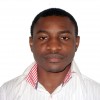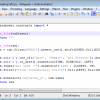Political strategy is international now. Enrique Cocero works from Madrid for his consultancy 7-50 Electoral Math, using data to understand voters and candidates in election campaigns across the world. He’s struggled with PDFs for a long time, and recently found PDF Tables via a Google search. He says: I used to have nightmares – I’m […]







